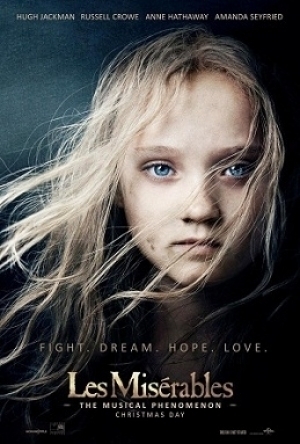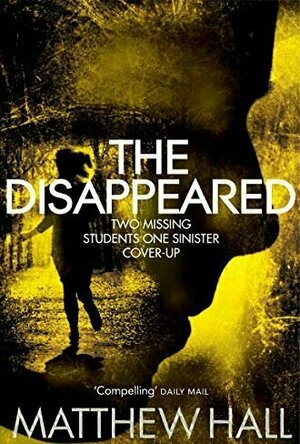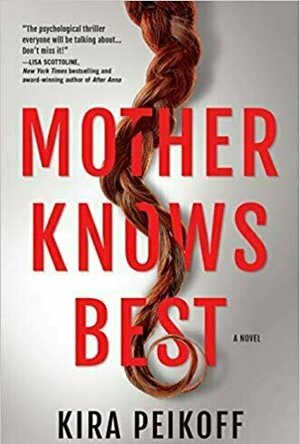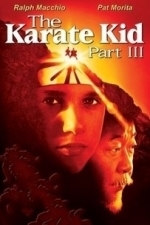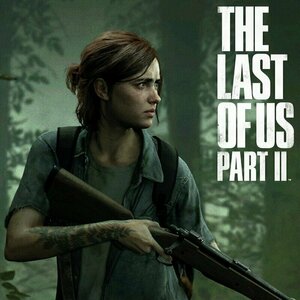Search
Search results

Choices: Stories You Play
Entertainment and Games
App
One choice can change everything! Fall in love, solve crimes, or embark on epic fantasy adventures...
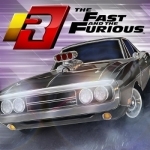
Racing Rivals
Games and Sports
App
MILLISECONDS MATTER Jump behind the wheel and risk your ride as you challenge drivers around the...
Gareth von Kallenbach (980 KP) rated Les Misérables (2012) in Movies
Aug 7, 2019
Words cannot express how amazing this movie is. For those of you who have shouldered through the modern-day musical revival; suffering through the questionable singing talents of many stars as “Phantom of the Opera,” “Chicago,” “Moulin Rouge,” “Sweeny Todd,” and that abysmal rendition of “Nine” – I can assure you, that “Les Mis” will change that perception. For once, the casting crew took the time to select a cast capable of the repertoire’s vocal demands (and Les Mis is very vocally demanding – as most operatic pieces are). It’s apparent that each singer was heavily vocally coached and trained, some faring more so than others. While this is no replacement for raw talent, I can assure you that the cast was downright fantastic.
For years I studied and sang opera. I know music and I’ve sung my fair share of Les Mis pieces in my past. I adore Victor Hugo and “Les Misérables” is by far one of my favorite literary works. When I began to watch this movie, I was keyed up to be critical on the vocal spectrum, the literary aspect, and the representation of one of my favorite Broadway/London pieces. To be frank, I wasn’t disappointed at all.
For those unfamiliar with Hugo’s work or what to expect with Les Mis, let me give you a brief synopsis on its plot and the history of the French revolution in which this takes place. France has just endured her infamous Revolution (the one with the guillotine, Marie-Antoinette, and the Sans Culottes movement) and her people are still suffering. There is no money for food, the country is in the midst of a depression, and the Napoleonic regime is yet to come to fruition. Thus, you find Fantine (Hathaway), a poor but determined (and beautiful) woman trying desperately to make enough money to support her daughter, Cosette, who resides with friends in another city. The book reveals that Madame Thénardier (Bonham-Carter) and her husband, Thénardier (Baron-Cohen) were supposed to be taking the money that Fantine had given to them to provide for her daughter, Cosette. Instead, however, Cosette is forced to live in absolute poverty while Thénardier’s daughter, Eponine, lives the life of opulence. Meanwhile, Jean Valjean (Jackman), an ex-convict, is trying desperately to find legitimate work after his stint in prison for stealing a loaf of bread to provide for his starving family. The infamous policeman, Javert (Crowe), feels Valjean will re-offend and makes it his mission to pursue Valjean until the end.
Finding the world a terrible place as an ex-convict, Valjean seeks to steal from a church her silver, believing he has no other way to survive. It is the love of a good priest, however, who gives Valjean the silver he seeks under the pledge he will become a servant of God and provide for others the same good he has provided for him. Thus, years later, we find Valjean a reformed man (who has skipped on his parole and assumed a new name), running a factory in which Fantine works. And so, when Fantine is fired from her job and takes to a life of prostitution in order to provide for her daughter, it is Valjean who feels the burden of her demise and takes it upon himself to save Cosette and raise her as his own.
Of course, this entire time, Javert is pursuing Valjean and a new revolution is starting to take place amongst Paris’ people. Years later we find Cosette grown to womanhood (now played by Seyfried), and falling in love with one of the revolution’s key players, a youth by the name of Marius (Redmayne). The Thénardiers are back again and we find their once-grand lifestyle has resorted to a life of gutter-crime and Éponine (now played by Barks), is desperately in love with Marius as well (although her love is unrequited). For those unfamiliar with how the story plays out, I will leave it at that.
I will caution those who have never seen this play to prepare for a long show. It is very dramatic and very intense, but visually breath-taking and emotionally moving in so many ways. Vocally, there are times when the legato is lacking and some transitions seemed forced (Crowe struggled many times with allowing his natural vibrato to come through instead of pushing a sustained note; Seyfried’s vibrato is very trill-like and sometimes distracts from the pure quality of her spinto-soprano range). However, I must say that I was blown away by Hathway’s performance (she brought me to tears with “I Dreamed a Dream” due to her emotional rendition) and her ability to truly escape into her character. Similarly, Tviet (he played Enjolras) was stunning with his vocal command and Redmayne was equally as impressive. Jackman will amaze you with his rich tenor and, surprisingly, I found Crowe to have a fantastic baritone when he didn’t force his work. Baron-Cohen and Bonham-Carter provided a much needed comical respite throughout the film (and both sing beautifully as well, although this movie didn’t focus on their vocal command as much). Barks did a lovely job for most of her work; although I found her rendition of “On My Own” a bit forced (she is a true mezzo but seemed to push her high notes, although this may have been where her voice shifted into her head voice which is no fault of her own).
Overall, if you are an avid musical lover and have been waiting for a proper rendition of this production, this movie will astound you. Visually, the movie is breath-taking and the acting is absolutely fantastic. I’m still haunted by the revolutionary song, to be honest. If you’ve been waiting for a musical worthy of the big screen, this one is it. Look for it to sweep the Oscars this year.
This movie deserves an A all around.
For years I studied and sang opera. I know music and I’ve sung my fair share of Les Mis pieces in my past. I adore Victor Hugo and “Les Misérables” is by far one of my favorite literary works. When I began to watch this movie, I was keyed up to be critical on the vocal spectrum, the literary aspect, and the representation of one of my favorite Broadway/London pieces. To be frank, I wasn’t disappointed at all.
For those unfamiliar with Hugo’s work or what to expect with Les Mis, let me give you a brief synopsis on its plot and the history of the French revolution in which this takes place. France has just endured her infamous Revolution (the one with the guillotine, Marie-Antoinette, and the Sans Culottes movement) and her people are still suffering. There is no money for food, the country is in the midst of a depression, and the Napoleonic regime is yet to come to fruition. Thus, you find Fantine (Hathaway), a poor but determined (and beautiful) woman trying desperately to make enough money to support her daughter, Cosette, who resides with friends in another city. The book reveals that Madame Thénardier (Bonham-Carter) and her husband, Thénardier (Baron-Cohen) were supposed to be taking the money that Fantine had given to them to provide for her daughter, Cosette. Instead, however, Cosette is forced to live in absolute poverty while Thénardier’s daughter, Eponine, lives the life of opulence. Meanwhile, Jean Valjean (Jackman), an ex-convict, is trying desperately to find legitimate work after his stint in prison for stealing a loaf of bread to provide for his starving family. The infamous policeman, Javert (Crowe), feels Valjean will re-offend and makes it his mission to pursue Valjean until the end.
Finding the world a terrible place as an ex-convict, Valjean seeks to steal from a church her silver, believing he has no other way to survive. It is the love of a good priest, however, who gives Valjean the silver he seeks under the pledge he will become a servant of God and provide for others the same good he has provided for him. Thus, years later, we find Valjean a reformed man (who has skipped on his parole and assumed a new name), running a factory in which Fantine works. And so, when Fantine is fired from her job and takes to a life of prostitution in order to provide for her daughter, it is Valjean who feels the burden of her demise and takes it upon himself to save Cosette and raise her as his own.
Of course, this entire time, Javert is pursuing Valjean and a new revolution is starting to take place amongst Paris’ people. Years later we find Cosette grown to womanhood (now played by Seyfried), and falling in love with one of the revolution’s key players, a youth by the name of Marius (Redmayne). The Thénardiers are back again and we find their once-grand lifestyle has resorted to a life of gutter-crime and Éponine (now played by Barks), is desperately in love with Marius as well (although her love is unrequited). For those unfamiliar with how the story plays out, I will leave it at that.
I will caution those who have never seen this play to prepare for a long show. It is very dramatic and very intense, but visually breath-taking and emotionally moving in so many ways. Vocally, there are times when the legato is lacking and some transitions seemed forced (Crowe struggled many times with allowing his natural vibrato to come through instead of pushing a sustained note; Seyfried’s vibrato is very trill-like and sometimes distracts from the pure quality of her spinto-soprano range). However, I must say that I was blown away by Hathway’s performance (she brought me to tears with “I Dreamed a Dream” due to her emotional rendition) and her ability to truly escape into her character. Similarly, Tviet (he played Enjolras) was stunning with his vocal command and Redmayne was equally as impressive. Jackman will amaze you with his rich tenor and, surprisingly, I found Crowe to have a fantastic baritone when he didn’t force his work. Baron-Cohen and Bonham-Carter provided a much needed comical respite throughout the film (and both sing beautifully as well, although this movie didn’t focus on their vocal command as much). Barks did a lovely job for most of her work; although I found her rendition of “On My Own” a bit forced (she is a true mezzo but seemed to push her high notes, although this may have been where her voice shifted into her head voice which is no fault of her own).
Overall, if you are an avid musical lover and have been waiting for a proper rendition of this production, this movie will astound you. Visually, the movie is breath-taking and the acting is absolutely fantastic. I’m still haunted by the revolutionary song, to be honest. If you’ve been waiting for a musical worthy of the big screen, this one is it. Look for it to sweep the Oscars this year.
This movie deserves an A all around.
Lyndsey Gollogly (2893 KP) rated The Disappeared (Jenny Cooper #2) in Books
Dec 11, 2020
205
Kindle
The Disappeared ( Coroner Jenny Cooper book 2)
By Matthew Hall
Review via Smashbomb! Link posted in commenonce read.
Two missing students. One sinister cover-up.
Two young British students, Nazim Jamal and Rafi Hassan vanish without a trace. The police tell their parents that the boys had been under surveillance, that it was likely they left the country to pursue their dangerous new ideals. Seven years later, Nazim's grief-stricken mother is still unconvinced. Jenny Cooper is her last hope.
Jenny is finally beginning to settle into her role as Coroner for the Severn Valley; the ghosts of her past that threatened to topple her, banished to the sidelines once more. But as the inquest into Nazim's disappearance gets underway, the stink of corruption and conspiracy becomes clear . . .
As the pressure from above increases, a code of silence is imposed on the inquest and events begin to spiral out of all control, pushing Jenny to breaking point. For how could she have known that by unravelling the mysteries of the disappeared, she would begin to unearth her own buried secrets?
I enjoyed this book so much! I really connected with Jenny I found a lot of common ground with her and with the two surrounding cities of Birmingham and Bristol! I sometimes struggle when a male author writes a female lead but Hall does it brilliantly! The story was interesting it kept you gripped from the start. The struggle for Jenny is balancing her being a mother with her high powered career all while having mental health issues caused by real life situations! I genuinely couldn’t put it down!
Kindle
The Disappeared ( Coroner Jenny Cooper book 2)
By Matthew Hall
Review via Smashbomb! Link posted in commenonce read.
Two missing students. One sinister cover-up.
Two young British students, Nazim Jamal and Rafi Hassan vanish without a trace. The police tell their parents that the boys had been under surveillance, that it was likely they left the country to pursue their dangerous new ideals. Seven years later, Nazim's grief-stricken mother is still unconvinced. Jenny Cooper is her last hope.
Jenny is finally beginning to settle into her role as Coroner for the Severn Valley; the ghosts of her past that threatened to topple her, banished to the sidelines once more. But as the inquest into Nazim's disappearance gets underway, the stink of corruption and conspiracy becomes clear . . .
As the pressure from above increases, a code of silence is imposed on the inquest and events begin to spiral out of all control, pushing Jenny to breaking point. For how could she have known that by unravelling the mysteries of the disappeared, she would begin to unearth her own buried secrets?
I enjoyed this book so much! I really connected with Jenny I found a lot of common ground with her and with the two surrounding cities of Birmingham and Bristol! I sometimes struggle when a male author writes a female lead but Hall does it brilliantly! The story was interesting it kept you gripped from the start. The struggle for Jenny is balancing her being a mother with her high powered career all while having mental health issues caused by real life situations! I genuinely couldn’t put it down!
Kristy H (1252 KP) rated Mother Knows Best in Books
Oct 31, 2019
Claire Abrams' world crashed when her mitochondrial DNA passed along a mutation that eventually killed her son, Colton, when he was eight. It devastated Claire and her husband, Ethan. But then Claire discovers Dr. Robert Nash, a fertility doctor who is working with his young research scientist, Jillian Nash, to create the first baby with three genetic parents. This allows Claire to have a healthy baby. The fact that it's currently illegal doesn't stop the trio, but eventually news of their feat leaks, and Claire goes into hiding, joined by Robert. Years later, young Abby lives a sheltered life with her parents, including a mom who barely wants to leave the house. And then there's Jillian, who served a prison sentence for her work on the experiment. She's determined to get credit for her science, and nothing will stop her.
"It is impossible to tell that my beautiful girl is the first of her kind. Even she doesn't know."
I found this book totally addictive. Yes, it's a little crazy at times, but it was a real page-turner, and it had me glued to the pages. I loved Abby, who gets her own turn at telling her story, and I even liked Claire, even if I questioned some of her decisions at times. As someone who has been through IVF, a lot of this story hit close to home, and I could understand and empathize with what was going on, even if the plotline was far more far-fetched than anything that has occurred in my own life. But the ultimate themes of family, searching for a place to belong, and the desire to have safe and healthy children--those are universal.
The book certainly raises some interesting ethical questions. It keeps the science fairly simple, so it's easy to follow along and understand. It makes you think, and with Ethan and Claire on two starkly opposing sides, it lets you put yourself in their shoes and wonder what you would do in a similar situation. The multiple narrators--including Abby, Claire, and Jillian--work well, too.
At the same time, much of the book is an adrenaline filled thriller, with crazy characters and wild situations. I figured out some of the pieces, but it always kept me guessing and interested. I was definitely fascinated and mesmerized, wondering what on earth was going to happen next.
"But someone out there will never give up searching. Someone who's long out of prison, whose name I can't bear to utter or think."
There were a few slightly crazy moments, and I think the ending wrapped up a little too easily, but I liked it, so all is well. This book was exactly what I needed--an addictive read with an interesting story that kept me interested. 4 stars.
"It is impossible to tell that my beautiful girl is the first of her kind. Even she doesn't know."
I found this book totally addictive. Yes, it's a little crazy at times, but it was a real page-turner, and it had me glued to the pages. I loved Abby, who gets her own turn at telling her story, and I even liked Claire, even if I questioned some of her decisions at times. As someone who has been through IVF, a lot of this story hit close to home, and I could understand and empathize with what was going on, even if the plotline was far more far-fetched than anything that has occurred in my own life. But the ultimate themes of family, searching for a place to belong, and the desire to have safe and healthy children--those are universal.
The book certainly raises some interesting ethical questions. It keeps the science fairly simple, so it's easy to follow along and understand. It makes you think, and with Ethan and Claire on two starkly opposing sides, it lets you put yourself in their shoes and wonder what you would do in a similar situation. The multiple narrators--including Abby, Claire, and Jillian--work well, too.
At the same time, much of the book is an adrenaline filled thriller, with crazy characters and wild situations. I figured out some of the pieces, but it always kept me guessing and interested. I was definitely fascinated and mesmerized, wondering what on earth was going to happen next.
"But someone out there will never give up searching. Someone who's long out of prison, whose name I can't bear to utter or think."
There were a few slightly crazy moments, and I think the ending wrapped up a little too easily, but I liked it, so all is well. This book was exactly what I needed--an addictive read with an interesting story that kept me interested. 4 stars.
Kristy H (1252 KP) rated Valley of the Dolls in Books
May 13, 2021
A classic that doesn't stand the test of time
This is the twenty-second book in my #atozchallenge! I'm challenging myself to read a book from my shelves that starts with each letter of the alphabet. Let's clear those shelves and delve into that backlist!
This classic novel had been sitting on my shelves for a while, so I decided to tackle it as a part of my challenge. I still have mixed feelings about it, even writing this review a month or so later. Honestly, this book is really depressing. The beginning was interesting, and I thought I would find it very engaging, but eventually the women became reduced to annoying drug addicts whose lives revolved around their looks and men. I wasn't sure what the message was, but it wasn't one I cared for.
VALLEY OF THE DOLLS centers on three women: Anne, a young woman from a tiny town who escapes and comes to New York City; Jennifer, a beautiful woman who parlays that beauty into an acting career; and Neely, a young woman with a lovely voice who dreams of an acting and singing career. Anne finds work at a talent agency, working for Henry Bellamy, which is how she meets Jennifer. Neely is her young neighbor. At first, all three women are poor and dreaming of a better life. Over the course of the book, their fortunes change, but they do not necessarily become happier.
I was sort of horrified if this was what life was like for the rich and famous in the 40s to the 60s. So much drinking, drugs, and partying. There was such intense focus on looks--if this book was supposed to be advanced for the era, it's certainly not now! The men came across terribly, but the women were not much better. Even if they were using their bodies for power, everything just felt icky. Anne is supposed to be the model of an independent woman, as she has her own money, but she's not... I wanted to like her, but it was hard.
Overall, while I certainly found parts of this book fascinating, I cannot say I always enjoyed it. It definitely provides great historical insight into a particular era, though. I'm glad I read it--it's always interesting to see what was a classic and why at certain times. But did I like the characters and plot? Not really. 2 stars for plot, rounded to 3 stars for historical significance. (Oh and major trigger warning for the use of the "f" word in relation to queer people. Part of the times, I realize, but it became very disconcerting after a while for me.)
This classic novel had been sitting on my shelves for a while, so I decided to tackle it as a part of my challenge. I still have mixed feelings about it, even writing this review a month or so later. Honestly, this book is really depressing. The beginning was interesting, and I thought I would find it very engaging, but eventually the women became reduced to annoying drug addicts whose lives revolved around their looks and men. I wasn't sure what the message was, but it wasn't one I cared for.
VALLEY OF THE DOLLS centers on three women: Anne, a young woman from a tiny town who escapes and comes to New York City; Jennifer, a beautiful woman who parlays that beauty into an acting career; and Neely, a young woman with a lovely voice who dreams of an acting and singing career. Anne finds work at a talent agency, working for Henry Bellamy, which is how she meets Jennifer. Neely is her young neighbor. At first, all three women are poor and dreaming of a better life. Over the course of the book, their fortunes change, but they do not necessarily become happier.
I was sort of horrified if this was what life was like for the rich and famous in the 40s to the 60s. So much drinking, drugs, and partying. There was such intense focus on looks--if this book was supposed to be advanced for the era, it's certainly not now! The men came across terribly, but the women were not much better. Even if they were using their bodies for power, everything just felt icky. Anne is supposed to be the model of an independent woman, as she has her own money, but she's not... I wanted to like her, but it was hard.
Overall, while I certainly found parts of this book fascinating, I cannot say I always enjoyed it. It definitely provides great historical insight into a particular era, though. I'm glad I read it--it's always interesting to see what was a classic and why at certain times. But did I like the characters and plot? Not really. 2 stars for plot, rounded to 3 stars for historical significance. (Oh and major trigger warning for the use of the "f" word in relation to queer people. Part of the times, I realize, but it became very disconcerting after a while for me.)
Versusyours (757 KP) rated The Karate Kid, Part III (1989) in Movies
Nov 7, 2019 (Updated Nov 7, 2019)
War on bonsai and sporting decency
Contains spoilers, click to show
I remember this film from a trip to the cinema on its release in 1989 and I recall fly kicking my way out of the cinema and into the mean Scottish streets. I am now at an age where fly kicking would be an effort in itself I decided to review it from my older and more critical eye.
It begins with a return to Part 1 to re-establish the bad blood Daniel (Ralph Macchio) and his aging sidekick Mr Miyagi (Pat Morita) have with John “I saw things in Vietnam” Kreese. This part I couldn’t let slide with me this viewing as the attempted punches by Kreese to contact Mr. Miyagi were as expected as Xmas day falling on the 25th of December each year. One failed attempt was followed by the same type of punch and the same outcome of bloody and smashed knuckles and an insurance claim for the car owners. After this we return to the present and a skulking and hobo like Kreese seeks the refuge of his ponytailed, rich and so 80s stereotyped “you know he is evil due to his involvement in toxic waste” comrade from the past Terry Silver.
Possibly due to giving him his shampoo and conditioner in Vietnam to maintain his ponytail or his heroics in battle, this remains unknown at this time.
What about Daniel and Miyagi you may ask well they are in for an unwelcome surprise when the housing complex they live in has been earmarked for redevelopment. To make matters worse unbeknown to Daniel his Uncle is ill and his mum must have been too busy with this to let Daniel know he is homeless as well as heartbroken after his holiday romance turned sour. Great use of a sentence to end a previous films love interest and subsequent relationship, one of films greatest tricks. At least he has a wad of money for college in his pocket to repair his broken heart. Spoiler alert neither the wad of money and the broken heart are the same for long.
So as it stands not much karate from Daniel but the use of Mr. Miyagi’s subtle use of Daniel as a glorified maid still exists as they branch out in the cutting world of Bonsai. Remember that college money well now its rent and utilities money after luckily realising there are no more Bonsai shops in the street and even luckier there is a pottery shop with a young lady for Daniel to obsess over and fight for her honour as he shows a propensity for in the previous films. The fact that she has a boyfriend only spurs Daniel on like the initial film in the series and makes her more desirable in his lusting eyes.
Enter the 80s Dragon it a supped up Zach Morris Karate Bad Boy, Mike Barnes who is wearing black to dictate his evil intentions. This guy could spell trouble for Daniel as he has links to Silver and thus the plot to ruin Daniels life and happiness for winning a local karate competition the year before takes seed. As someone who has played sports the format of the All Valley Karate Championship, which has been inexplicably changes to allow the defending Champion to only fight in the final where his battle wary and exhausted opponent will be easy prey for a crane kicking Daniel, makes no sense. Maybe Daniel is sick of being typecast as The Karate Kid but this area of the story annoyed me more than a grown man should as initially Daniel can’t even be bothered to sign up for this one fight but after some lying and coercion and some innocent Bonsai paying the price for The Karateless Kid.
More pressure from Barnes and his goons and more Bonsai casualties before Daniel and Mr. Miyagi are split between the tournament and after Daniel decided he will fight that 10 minutes if his life for another sweet trophy. With his training regime disguised as housework and child labour now running low, Miyagi wont train Daniel and thus pushing him into Silvers ponytailed clutches. The once meek and defensive Daniel learns that attack is more effective than Miyagi’s training and with another wooden victim (a repeating plot line in this film) being pummelled and the wax punched off it, Daniel is ready to be the badass he always threatened to be. A night out ends in a broken nose of a Silver bribed punk, Daniel questions who he has become and changes his mind about the tournament once more, only for Silver to admit his true intentions to ruin Daniel as a human being and to avenge John Kreese who is not dead as first explained but high on revenge and the smoking of broken kids karate trophies. They give the new and improved Daniel a beating until appearance of Mr. Miyagi, who may or may not be stalking Daniel, who uses his small but deadly side step and legs to defeat the 3 grown men with ease. There is nothing like a good beating to mend a relationship and together the Bonsai Brothers are back and for the umpteenth time Daniel IS going to defend his title and we all hoped that Barnes would make it through the many rounds to get to the final. Hollywood prevails and after relaxing and watching his potential opponents tiring and having their face smashed in, Daniel like and later day Elvis gets on the stage for a quick round of his greatest hits. In Karate Kid tradition Daniel is good and Cobra Kai are bad, he has honour they are sneaky, they will cheat Daniel wont. Daniel wins as usual and takes his hollow victory and Cobra Kai is no more or until the invention of YouTube at least.
Overall this film fondly remembered until I watched it again. The lack of new ideas left me disappointed and broken like the cliff Bonsai and like that tree I will heal and grow but I will be left with the scars of the better and simple life I used to live. The inclusion of Glen Medeiros on the soundtrack was almost enough to save it and keep it respectable but alas it was not to be, this film is the 80s ponytail of memories; best left cut off.
It begins with a return to Part 1 to re-establish the bad blood Daniel (Ralph Macchio) and his aging sidekick Mr Miyagi (Pat Morita) have with John “I saw things in Vietnam” Kreese. This part I couldn’t let slide with me this viewing as the attempted punches by Kreese to contact Mr. Miyagi were as expected as Xmas day falling on the 25th of December each year. One failed attempt was followed by the same type of punch and the same outcome of bloody and smashed knuckles and an insurance claim for the car owners. After this we return to the present and a skulking and hobo like Kreese seeks the refuge of his ponytailed, rich and so 80s stereotyped “you know he is evil due to his involvement in toxic waste” comrade from the past Terry Silver.
Possibly due to giving him his shampoo and conditioner in Vietnam to maintain his ponytail or his heroics in battle, this remains unknown at this time.
What about Daniel and Miyagi you may ask well they are in for an unwelcome surprise when the housing complex they live in has been earmarked for redevelopment. To make matters worse unbeknown to Daniel his Uncle is ill and his mum must have been too busy with this to let Daniel know he is homeless as well as heartbroken after his holiday romance turned sour. Great use of a sentence to end a previous films love interest and subsequent relationship, one of films greatest tricks. At least he has a wad of money for college in his pocket to repair his broken heart. Spoiler alert neither the wad of money and the broken heart are the same for long.
So as it stands not much karate from Daniel but the use of Mr. Miyagi’s subtle use of Daniel as a glorified maid still exists as they branch out in the cutting world of Bonsai. Remember that college money well now its rent and utilities money after luckily realising there are no more Bonsai shops in the street and even luckier there is a pottery shop with a young lady for Daniel to obsess over and fight for her honour as he shows a propensity for in the previous films. The fact that she has a boyfriend only spurs Daniel on like the initial film in the series and makes her more desirable in his lusting eyes.
Enter the 80s Dragon it a supped up Zach Morris Karate Bad Boy, Mike Barnes who is wearing black to dictate his evil intentions. This guy could spell trouble for Daniel as he has links to Silver and thus the plot to ruin Daniels life and happiness for winning a local karate competition the year before takes seed. As someone who has played sports the format of the All Valley Karate Championship, which has been inexplicably changes to allow the defending Champion to only fight in the final where his battle wary and exhausted opponent will be easy prey for a crane kicking Daniel, makes no sense. Maybe Daniel is sick of being typecast as The Karate Kid but this area of the story annoyed me more than a grown man should as initially Daniel can’t even be bothered to sign up for this one fight but after some lying and coercion and some innocent Bonsai paying the price for The Karateless Kid.
More pressure from Barnes and his goons and more Bonsai casualties before Daniel and Mr. Miyagi are split between the tournament and after Daniel decided he will fight that 10 minutes if his life for another sweet trophy. With his training regime disguised as housework and child labour now running low, Miyagi wont train Daniel and thus pushing him into Silvers ponytailed clutches. The once meek and defensive Daniel learns that attack is more effective than Miyagi’s training and with another wooden victim (a repeating plot line in this film) being pummelled and the wax punched off it, Daniel is ready to be the badass he always threatened to be. A night out ends in a broken nose of a Silver bribed punk, Daniel questions who he has become and changes his mind about the tournament once more, only for Silver to admit his true intentions to ruin Daniel as a human being and to avenge John Kreese who is not dead as first explained but high on revenge and the smoking of broken kids karate trophies. They give the new and improved Daniel a beating until appearance of Mr. Miyagi, who may or may not be stalking Daniel, who uses his small but deadly side step and legs to defeat the 3 grown men with ease. There is nothing like a good beating to mend a relationship and together the Bonsai Brothers are back and for the umpteenth time Daniel IS going to defend his title and we all hoped that Barnes would make it through the many rounds to get to the final. Hollywood prevails and after relaxing and watching his potential opponents tiring and having their face smashed in, Daniel like and later day Elvis gets on the stage for a quick round of his greatest hits. In Karate Kid tradition Daniel is good and Cobra Kai are bad, he has honour they are sneaky, they will cheat Daniel wont. Daniel wins as usual and takes his hollow victory and Cobra Kai is no more or until the invention of YouTube at least.
Overall this film fondly remembered until I watched it again. The lack of new ideas left me disappointed and broken like the cliff Bonsai and like that tree I will heal and grow but I will be left with the scars of the better and simple life I used to live. The inclusion of Glen Medeiros on the soundtrack was almost enough to save it and keep it respectable but alas it was not to be, this film is the 80s ponytail of memories; best left cut off.
Daniel Boyd (1066 KP) rated The Last of Us Part II in Video Games
Jun 30, 2020 (Updated Jul 1, 2020)
Gameplay (2 more)
Graphics
Sound
I'm Not Mad, I'm Just Disappointed
Contains spoilers, click to show
It's been a while since I've written anything, but I couldn't let this one go by without saying anything about it.
The Last Of Us Part 2 is the biggest disappointment of 2020.
I finished the game a few days ago and have been letting it process in my mind in the hopes that it will somehow make more sense to me. So far that hasn't been the case.
Let me provide you with some context, I wanted to like this game more than anyone. The first Last Of Us is one of my favourite games of all time and because of the spectacular writing and performances in that first game, I was really excited to see what would happen to these characters. This was definitely one of my most anticipated releases in recent years and I'm genuinely in awe at how much of a let down it was, especially after the 10/10 reviews I had been reading leading up to the game's release.
Spoilers will follow from this point on as it's pretty difficult to discuss my reasoning for being let down by the game without getting in depth, so please tread carefully if you have yet to play through the game.
First off, I don't normally like to bring up my personal politics when discussing fictional media, but I do feel that it's necessary to mention that I am pro LGBTQ+ and none of my issues with this game stem from any sort of political bias that I may have.
The game opens slowly, juxtaposing the intense opening of the first game. However these slow opening few hours really allow you to drink in the breathtaking visuals and fantastic sound design. These elements really help to sell the cinematic nature of the game, along with consistently stellar performances.
Then we are shown the main conflict that will propel the story for the sequel. Joel is unceremoniosly murdered by Abby, a new character that we know nothing about at this point.
Now I don't have a problem with main characters being killed off in a story, in fact as a Tarantino fan, I relish it when it's done properly. The problem with Joel's death is the way that it was executed. First off, Joel and Tommy would never in a million years have blindly trusted this random faction that they've just bumped into enough to give them their names so quickly. They've both survived 25 years in the apocalypse and yet the writers still expect you to believe that they would be this naïve and stupid. Then, there's the fact that this is how they choose to introduce this new group that you are later expected to sympathize with and this character that they will later force you to play as for half the game. Why would anyone who is a fan of this world and these characters want to play and learn about this random ruthless killer?
Now, what you might be asking is "aren't Joel and Ellie ruthless killers at this point?" And you would be right, they are. However the point is that we were already invested in these characters before we seen them ruthlessly murdering infected and humans alike and therefore are able to put it down to them having to do what they had to in order to survive. With Abby you are introduced to her killing a beloved character from the first game for the sake of pure shock value.
The first game came out during an oversaturation period of zombie stories across media and yet because of it's stellar writing, it managed to stand out from the crowd and actually become one of the most unique games of the last generation in terms of the story it told. The story in this game feels so generic by comparison. I remember watching interviews with Neil Druckman in the lead up to the game's release where he would talk about how the main hurdle of writing this game was justifying it's existence after the first one ended so well. Really? You had seven years and another generic revenge plot was the best thing that you could come up with?
Another highlight from the first game was the fleshed out side characters that all felt deep and like they really existed in the world. Characters like Tess, Bill and Marlene all naturally fitted into the plot and felt necessary to the overall story being told. The same cannot be said for the side characters in this game. I have already mentioned how it is made impossible to sympathize with Abby and her crew after seeing what they did to Joel. There are two other new characters introduced called Yara and Lev. They are siblings, which put me in mind of Henry and Sam from the first game, but where Henry and Sam felt layered and genuine, Yara and Lev feel shallow and shoehorned in to give Abby's plotline some narrative weight.
Then there is the strange pacing of the story. I feel like I must reiterate, they introduce a character that murders the beloved protagonist from the first game and later expect you to sympathize with her. Then there is the fact that you play as Ellie for the next 8 hours or so before they present you with a shocking cliffhanger, only to then force you to play as Abby for the next 10 hours. Not only are they making you play as the character that murdered Joel and Jessie in cold blood, but every extra hour that they unsuccessfully attempt to make you feel sorry for Abby is another hour before you can get back to see how the cliffhanger, (that was introduced 10 hours ago,) is resolved. And then, they bafflingly make you fight Ellie while playing as Abby. Why would the game expect me to want to hurt this character that I care about as this brand new random stranger?
You are then eventually given control back as Ellie and the game lulls you into a false sense of thinking that you are finally done playing as Abby. Then Ellie makes the totally nonsensical decision to abandon a nice, cushty, quiet farm life that she's carved out for herself, to go after Abby yet again.
After that, you guessed it! You are forced to play as Abby yet again. Thankfully it's only briefly as we then at long last get to properly play as Ellie again. Not sure if you remember her at this point, she's the one that's in all of the trailers and posters and on the cover of the damn game?
Then we get what is probably the most anticlimactic ending in the history of gaming. Ellie lets Abby go. After Abby killed Joel and Jessie and crippled Tommy and after Ellie murdered all of Abby's friends and after Ellie abandoned her girlfriend and step-son and had her fingers bitten off, she's just like, "nah fam, I'm good."
I'm sorry, what?
You are going to break your promise to Tommy and let the person that murdered your father figure get away? Why?
If getting your revenge wasn't worth it, you should have really realized that back on the farm when you were surrounded by people you love and a chance at a family life. If you chose to leave that behind you must be committed enough to see it through, otherwise it is all for nothing. There is subverting audience expectations and then there is having your characters make nonsensical decisions and I feel like TLOU2 was full of the latter.
On a positive note, the gameplay is extremely fun and satisfying. Every blow lands with more force and every bullet seems to strike even harder than in the first game. It does get a bit repetitive after a while and the actual function of taking out a group of enemies hasn't evolved a great deal since the first game, but I still really enjoyed it. The upgrading and crafting systems have also been fleshed out. This, along with the immaculate graphical presentation, tight, fluid animations, brilliant audio and expectedly phenomenal performances make for something with so much potential, with only the writing and direction letting it down. Unfortunately, writing and directing are both pretty essential in a story driven game.
Before I summarise, I'd like to highlight that I am not against stories that explore the moral grey area and don't have clear heroes and villains. For example, Metal Gear Solid is my favourite franchise in gaming and the whole point of that series is to show that there is no black and white, but we all do things for our own reasons. A good story should be able to make you see the things from the "villain's" point of view without being like, "look see what you did to them? That is why they are the way they are! Look see, she is a good person because she plays fetch with dogs!" In TLOU2 it all just feels so forced and unnatural. A good storyteller should show a character's motivations and then show their actions and leave it up to audience to decide if it's justified, instead of strictly saying, "this character is 100% justified in the heinous act that you just seen her commit, now you must be on her side!"
I think that's all that I've got to say and I guess at the very least, this game has got people talking. You cannot accuse it of playing it safe, but there are a ton of different ways that the plot could have went that probably would have been a lot more satisfying for fans of the series like myself. 6/10
The Last Of Us Part 2 is the biggest disappointment of 2020.
I finished the game a few days ago and have been letting it process in my mind in the hopes that it will somehow make more sense to me. So far that hasn't been the case.
Let me provide you with some context, I wanted to like this game more than anyone. The first Last Of Us is one of my favourite games of all time and because of the spectacular writing and performances in that first game, I was really excited to see what would happen to these characters. This was definitely one of my most anticipated releases in recent years and I'm genuinely in awe at how much of a let down it was, especially after the 10/10 reviews I had been reading leading up to the game's release.
Spoilers will follow from this point on as it's pretty difficult to discuss my reasoning for being let down by the game without getting in depth, so please tread carefully if you have yet to play through the game.
First off, I don't normally like to bring up my personal politics when discussing fictional media, but I do feel that it's necessary to mention that I am pro LGBTQ+ and none of my issues with this game stem from any sort of political bias that I may have.
The game opens slowly, juxtaposing the intense opening of the first game. However these slow opening few hours really allow you to drink in the breathtaking visuals and fantastic sound design. These elements really help to sell the cinematic nature of the game, along with consistently stellar performances.
Then we are shown the main conflict that will propel the story for the sequel. Joel is unceremoniosly murdered by Abby, a new character that we know nothing about at this point.
Now I don't have a problem with main characters being killed off in a story, in fact as a Tarantino fan, I relish it when it's done properly. The problem with Joel's death is the way that it was executed. First off, Joel and Tommy would never in a million years have blindly trusted this random faction that they've just bumped into enough to give them their names so quickly. They've both survived 25 years in the apocalypse and yet the writers still expect you to believe that they would be this naïve and stupid. Then, there's the fact that this is how they choose to introduce this new group that you are later expected to sympathize with and this character that they will later force you to play as for half the game. Why would anyone who is a fan of this world and these characters want to play and learn about this random ruthless killer?
Now, what you might be asking is "aren't Joel and Ellie ruthless killers at this point?" And you would be right, they are. However the point is that we were already invested in these characters before we seen them ruthlessly murdering infected and humans alike and therefore are able to put it down to them having to do what they had to in order to survive. With Abby you are introduced to her killing a beloved character from the first game for the sake of pure shock value.
The first game came out during an oversaturation period of zombie stories across media and yet because of it's stellar writing, it managed to stand out from the crowd and actually become one of the most unique games of the last generation in terms of the story it told. The story in this game feels so generic by comparison. I remember watching interviews with Neil Druckman in the lead up to the game's release where he would talk about how the main hurdle of writing this game was justifying it's existence after the first one ended so well. Really? You had seven years and another generic revenge plot was the best thing that you could come up with?
Another highlight from the first game was the fleshed out side characters that all felt deep and like they really existed in the world. Characters like Tess, Bill and Marlene all naturally fitted into the plot and felt necessary to the overall story being told. The same cannot be said for the side characters in this game. I have already mentioned how it is made impossible to sympathize with Abby and her crew after seeing what they did to Joel. There are two other new characters introduced called Yara and Lev. They are siblings, which put me in mind of Henry and Sam from the first game, but where Henry and Sam felt layered and genuine, Yara and Lev feel shallow and shoehorned in to give Abby's plotline some narrative weight.
Then there is the strange pacing of the story. I feel like I must reiterate, they introduce a character that murders the beloved protagonist from the first game and later expect you to sympathize with her. Then there is the fact that you play as Ellie for the next 8 hours or so before they present you with a shocking cliffhanger, only to then force you to play as Abby for the next 10 hours. Not only are they making you play as the character that murdered Joel and Jessie in cold blood, but every extra hour that they unsuccessfully attempt to make you feel sorry for Abby is another hour before you can get back to see how the cliffhanger, (that was introduced 10 hours ago,) is resolved. And then, they bafflingly make you fight Ellie while playing as Abby. Why would the game expect me to want to hurt this character that I care about as this brand new random stranger?
You are then eventually given control back as Ellie and the game lulls you into a false sense of thinking that you are finally done playing as Abby. Then Ellie makes the totally nonsensical decision to abandon a nice, cushty, quiet farm life that she's carved out for herself, to go after Abby yet again.
After that, you guessed it! You are forced to play as Abby yet again. Thankfully it's only briefly as we then at long last get to properly play as Ellie again. Not sure if you remember her at this point, she's the one that's in all of the trailers and posters and on the cover of the damn game?
Then we get what is probably the most anticlimactic ending in the history of gaming. Ellie lets Abby go. After Abby killed Joel and Jessie and crippled Tommy and after Ellie murdered all of Abby's friends and after Ellie abandoned her girlfriend and step-son and had her fingers bitten off, she's just like, "nah fam, I'm good."
I'm sorry, what?
You are going to break your promise to Tommy and let the person that murdered your father figure get away? Why?
If getting your revenge wasn't worth it, you should have really realized that back on the farm when you were surrounded by people you love and a chance at a family life. If you chose to leave that behind you must be committed enough to see it through, otherwise it is all for nothing. There is subverting audience expectations and then there is having your characters make nonsensical decisions and I feel like TLOU2 was full of the latter.
On a positive note, the gameplay is extremely fun and satisfying. Every blow lands with more force and every bullet seems to strike even harder than in the first game. It does get a bit repetitive after a while and the actual function of taking out a group of enemies hasn't evolved a great deal since the first game, but I still really enjoyed it. The upgrading and crafting systems have also been fleshed out. This, along with the immaculate graphical presentation, tight, fluid animations, brilliant audio and expectedly phenomenal performances make for something with so much potential, with only the writing and direction letting it down. Unfortunately, writing and directing are both pretty essential in a story driven game.
Before I summarise, I'd like to highlight that I am not against stories that explore the moral grey area and don't have clear heroes and villains. For example, Metal Gear Solid is my favourite franchise in gaming and the whole point of that series is to show that there is no black and white, but we all do things for our own reasons. A good story should be able to make you see the things from the "villain's" point of view without being like, "look see what you did to them? That is why they are the way they are! Look see, she is a good person because she plays fetch with dogs!" In TLOU2 it all just feels so forced and unnatural. A good storyteller should show a character's motivations and then show their actions and leave it up to audience to decide if it's justified, instead of strictly saying, "this character is 100% justified in the heinous act that you just seen her commit, now you must be on her side!"
I think that's all that I've got to say and I guess at the very least, this game has got people talking. You cannot accuse it of playing it safe, but there are a ton of different ways that the plot could have went that probably would have been a lot more satisfying for fans of the series like myself. 6/10

Scanner App Pro
Business and Productivity
App
Scanner App is a handy scanner app that will turn your iPhone into a portable scanner. The best...
